A common refrain among people is that the Narendra Modi-led government has lived up to the promises made in its election manifesto. Also, the solution to the Kashmir problem is possible only when Modi is in power.
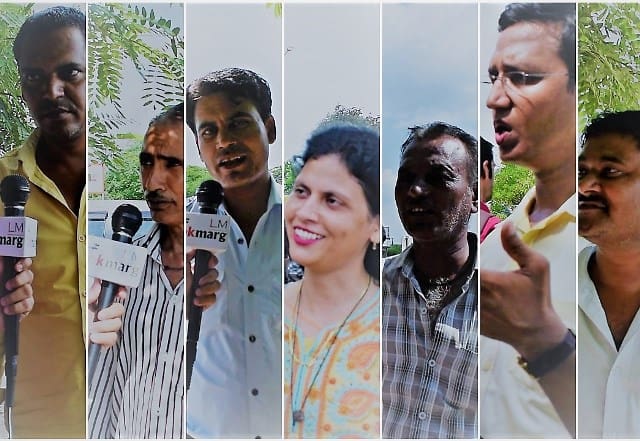

A common refrain among people is that the Narendra Modi-led government has lived up to the promises made in its election manifesto. Also, the solution to the Kashmir problem is possible only when Modi is in power.
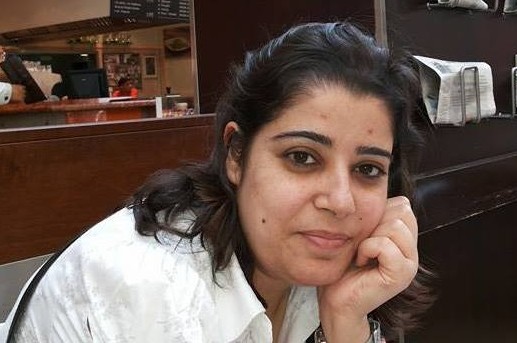
Article 370 now stands null and void. Kashmiri Pandits had been campaigning against the Aricle for years. And now when Kashmiri Pandits are celebrating, many journalists and Kashmiri Muslims, are openly stating that Pandits are happy because they are viewing it as a revenge for their exodus. Some even asking us (KPs) how’s this move going to ensure our return to the valley?
I want to ask these people – Why should we, Kashmir Pandits, not be happy? We were thrown out of our houses and reduced to being a refugee in our own country. No one spoke about us, for us. The world remained a mute spectator to our exodus. What would you have done had this happened to you? At least, we did not pick up guns unlike others. Instead, we chose a peaceful way to set things right. And you call that revenge?
Well then, call it what you like. But let me tell you, we are happy because this step gives us hope that we can now return to our homeland. And I, in my capacity as a Kashmiri Pandit and not as a Kashmiri woman (Thank God! There’s consensus, over the fact that the act was unfair to women), will tell you how.
I was in my pre-teens when I witnessed our exodus in 1990. My experiences in 1989-90 left me bitter about the place, its majority Muslim population. It shattered my trust in Muslims. And for years, I thought of Muslims as anti-Indian. It took me more than a decade and a number of interactions with Indian Muslims, to realise that the latter are as loyal to India as me or any KP. But even after all these years, I could never feel the same about Kashmiri Muslims.
Twenty three years after our migration, I mustered enough courage to visit my homeland, Kashmir, for the first time in 2013 along with some of my family members. The violence that had engulfed the state during my childhood had worn out the state, its people. During my interaction with the local Muslims, I could sense their present-day sentiments – some detested our presence; some repented the violence committed against Pandits and hoped for our return; and some wanted peace to return to the valley. A large number wanted to be with India. But despite this visible change among people, I never felt absolutely safe among them.
During my week-long stay there, not even once did I sleep properly. Even a whisper outside would wake me up, for it bought back memories of 19 January 1990 (the night when the whole valley reverberated with the war-cries of Islamists). No matter how nice the local muslims were to us, I found it hard to trust them. I was simply incapable of doing that, given my childhood experiences. And given my distrust, how could I even consider living with them again. This holds true for almost every Kashmiri Pandit, who had been on the receiving end of terrorism. Even if Delhi had given us free houses and hefty compensations, we would still not have gone back. We just do not feel safe there. There was no reason to believe that history won’t repeat itself. Especially, when terrorists had been quite vocal against our return.
Coming back to the question, how scrapping of Article 370 changes things for us? It paves the way for all Indians to go to Kashmir. With more pro-Indian people in the valley, we will not feel isolated, suffocated, and trapped in a hostile region. This in turn will give confidence to all those local Muslims, who want to live with India but are scared to say that because of the fear of anti-Indian elements. With more Indians there, the anti-Indian elements will have a reason to be fearful, not us. And this is why we are celebrating. And so is every pro-Indian Kashmiri that includes Muslims too.
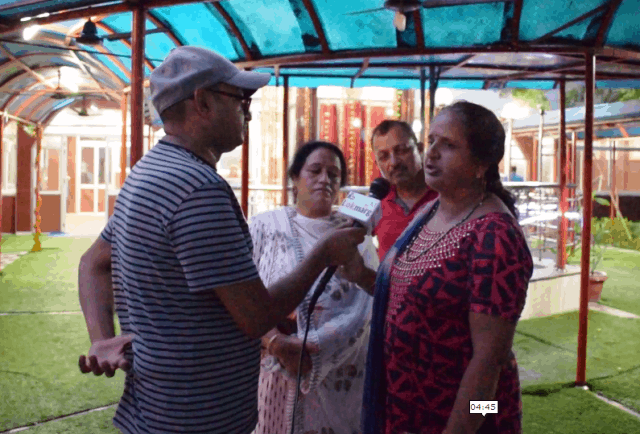
In this second part of the video, displaced Kashmiri Pandits hope that soon they will be able to visit their ancestral land along with their children, without any fear of repercussion in their heart.
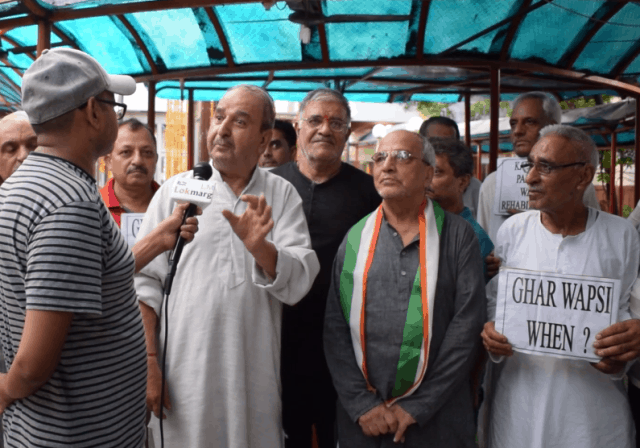
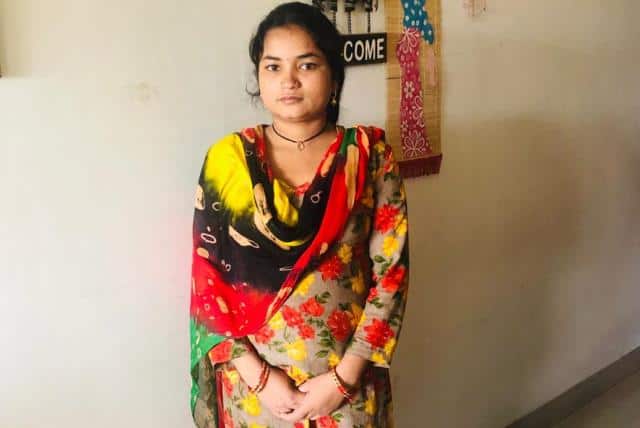
Many Muslim men, for several years, have abused the custom of triple talaq. They have taken their wives for granted. Talaq or divorce is the last resort in a marriage. It should only be used when irreconcilable differences arise between couples. But many men, especially in the lower economic strata, have been using it as the first option to end a conflict. The smallest of argument could result into a triple talaq. My own husband has threatened me a few times during the course of small fights. “Main teen talaq bol doonga (I will give you talaq),” he would say to win the argument. Thankfully, he never actually uttered the dreaded three words.
I deserve to be respected. If he is a working man I am a working woman too. If he wants me to respect him, because he is the breadwinner, then I want respect too. I contribute to our household’s income and take care of the home as well. My parents got me married as soon as I stepped into adulthood. Lack of a sound education, forced me to take up work as a domestic help.
However, one of my friends hasn’t been that lucky. Her husband left her for another woman. He just uttered ‘talaq’ three times and it was all over. She has a two-year-old son, but her ex-husband has never even tried to meet him. She has to take care of her baby and work at the same time. She has a very hard life.
Another relative of mine has six young children and her husband keeps threatening to divorce her. Doesn’t he ever think how she will raise her children? And it’s not about money alone, in a healthy society, two people get married to build and nurture a family together. Instant talaq goes against the very fabric of a ‘healthy society’. My relative constantly lives in fear. Is it so easy to leave people who have given their heart and soul into nurturing the family?
So far, triple talaq was being used by some egoistic men to get their way. But now with the passing of the Triple Talaq Bill women will have an equal say. At least now these men will not take impulsive decisions. They will be forced to think multiple times before taking divorce. They will also be bound by law to behave themselves.
While, I am very, very happy that the triple talaq bill has been passed in the parliament, I also feel that a good marriage is based on love, understanding, respect, compassion and most importantly, trust. Apart from legal means a couple should also work on nurturing the relationship.
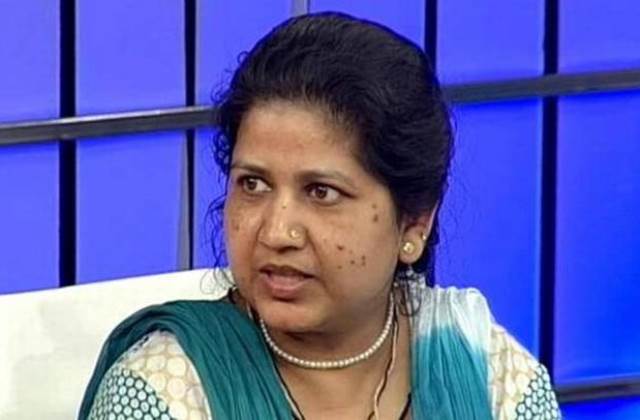
I am not used to being in the limelight — getting so much attention. From 2002 to 2015, the 13 years that I was married to Rizwan Ahmed, I was confined, segregated, bullied and beaten up. Speaking to people, stepping out of the house was unthinkable for me. Life changed when my petiiton to ban talaq-e-biddat, led the Supreme Court to declare triple talaq ‘unconstitutional’, ‘arbitrary’ and ‘not part of Islam’.
And now that Parliament of India has brought about a law criminalising triple talaq, people want to hear my story. So this is what I tell them, and to all Muslim women, who have been given a new lease of life through this law:
Laying waste to my Masters degree in Sociology, I got married to Rizwan, a small-time businessman from Allahabad in 2002. I was hardly 23 then. Taking up a job was an absolute no-no. In my husband’s family, it was against tradition for a woman to step out from the confines of their homes and build a career.
Several years went by. Quarrels and arguments with my husband, interspersed with dowry demands from my in-laws, were an integral part of my marriage. I was never allowed to go out or interact with anyone. The marriage was claustrophobic for me. I would not be completely dishonest, if I said that on many occasions I had thought of leaving my husband and breaking free. But by that time I had given birth to my two children. The thought of my children being raised in a broken home, stopped me from taking any hasty decisions.
In the year 2014, I started keeping unwell. I was diagnosed with a severe infection in my kidneys and liver. And this is when things started getting worse for me. Despite my ill-health, I was subjected to physical and mental torture. Whenever I asked my husband to take me to a doctor, he would simply refuse. If I dared to talk back, I would be thrashed.
One day in 2015, my husband boarded me on a train and left me at the Moradabad station to die. He was gracious enough to inform my parents. They had to come all the way from Kashipur to pick me up.
A few days later, on October 10, Rizwan sent me a ‘talaqnaama’ via speed-post. It came as a shock initially. How could he do it? Our children’s future was at stake here! I was distraught. But then I decided to fight it out. He should not get away with ruining my family, snatching away the children from their mother.
On April 23, 2016, I filed a petition in the Supreme Court demanding a ban on triple talaq. Acting on the petition, the Supreme Court declared the custom unconstitutional. However, cases of triple talaq continued to surface. A strong law was the need of the hour. I am happy that the parliament has passed the law. This will go a long way in the emancipation of Muslim women in India. After centuries of historical injustice, finally Muslim women have a law to safeguard their rights.
Critics say that criminalising triple talaq will leave the victim without any financial support if the husband is sent to jail. But the truth is that this law will prevent men from giving triple talaq to women in the first place. The law will nip the problem in the bud.
However, Muslim women need a lot more such laws to safeguard their rights. Malpractices, such as polygamy and halaala are still prevalent. Halala is a custom, in which if a divorced woman has to reunite with her husband, she has to marry another man for a night and then get a divorce. Initiatives need to be taken to imporve literacy levels among Muslim women too.
I have a 15-year-old daughter, and I hope to create a better world for her. Inshah-Allah, we will have it soon.
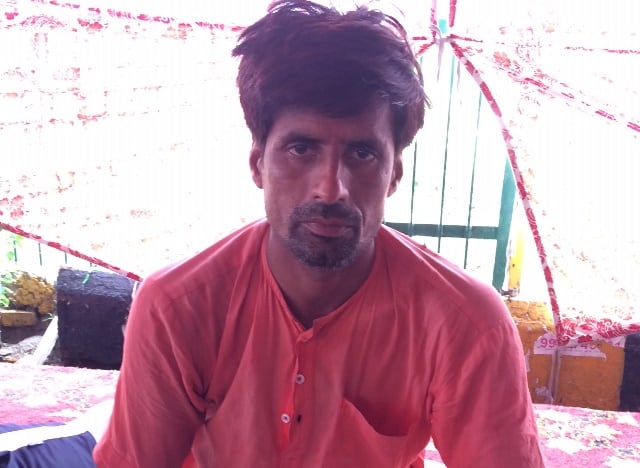
We, kanwariyas are worshippers of Lord Shiva. Every year, during the month of Hindu month of Shravan, we walk to Haridwar to fetch water from the Ganges for the Shiva lingas in our local temples. Over the years, while the arrangements for the kanwar yatris have improved manifold, some miscreants have tarnished the image of kanwariyas. I feel ashamed when people say that kanwariyas and hooliganism are synonymous with each other. There always are some bad elements among the kanwariyas, who unnecessarily create nuisance and pick up fights on road.
I am a veteran kanwar yatri. This year, it is my 30th trip. I started as a child at the age of 10, when I accompanied my father. And not once have I flouted any rules or picked up fights. All these years Bhole Baba (Lord Shiva) made sure that I was safe and I made sure that stuck to his mantra. Shivji drank poison to save the world, can’t we drink our anger and egos during kanwar yatra to make it a wonderful experience, not only for us, but also for the passersby? We must remember that we’re worshipping Lord Shiva and we must stick to the principles he taught us.
The Uttar Pradesh government has provided more than what we ever asked for, so as Shivbhakts, it is our duty to maintain peace and tranquility during the yatra.
Kanwariyas are bound to obey rules. There must not be any leniency for those who flout traffic rules to indulge in brawls on the roads.
There have been several improvements in the arrangements ever since, Yogi Adityanath came to power in Uttar Pradesh.
Earlier, there were kanwar camps with minimal facilities and we had to go to the nearby farms to relieve ourselves. But now, each camp has portable toilets, basic medical facility and much better space to relax. With dedicated lanes for kanwariyas on the busy roads and highways, there are lesser accidents. There were days when kanwariyas used to sleep on the roads due to overcrowded camps leading to fatal accidents. But now the administration has dealt very smartly with the issue.
Rules have been laid out to make the yatra a pleasant experience for everyone. And as responsible citizens we need to adhere to them.
Things will get better when the kanwariyas are regularised and identification of each devotee is registered before yatra. This will also help in insurance of the kanwariyas and tracing the missing ones. I am a transporter and I know the importance of obeying traffic rules.
The government has realised that kumbh and kanwar are not just religious festivals, they attract tourists as well. If the government makes kumbh-like arrangements for kanwar yatra, there will definitely be a surge in the number of devotees (especially women).
In the past four years, I have witnessed an increasing number of women yatris because of the availability of toilets and other safety arrangements. If this continues, there will be a day when kanwar yatra will become an international attraction.
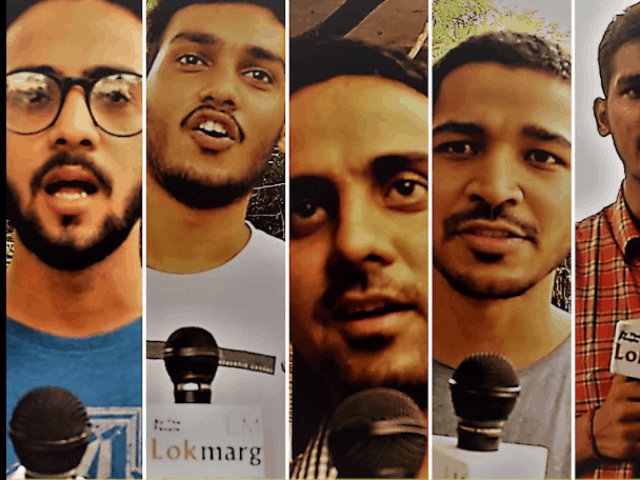
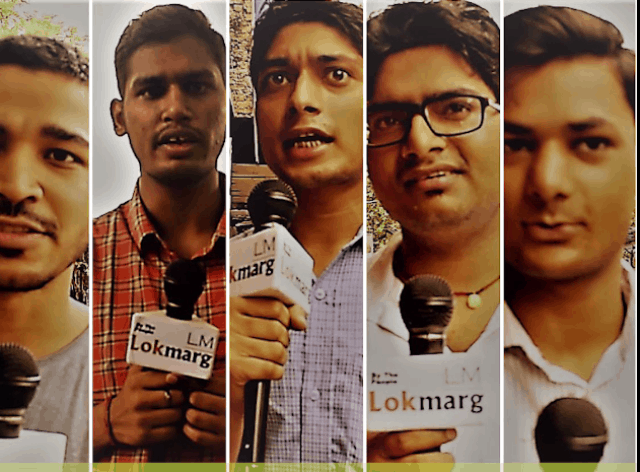
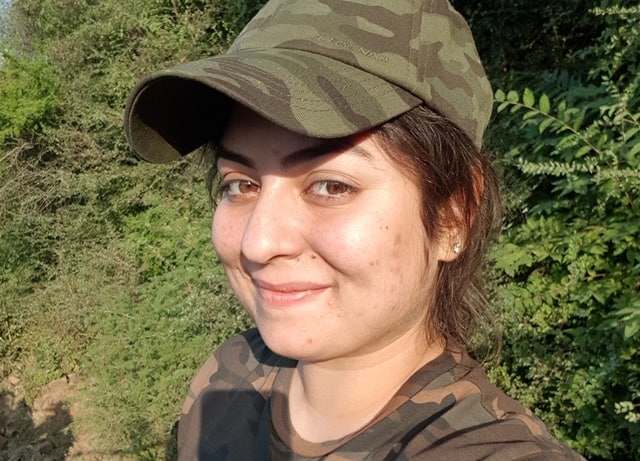
I was at my uncle’s office when I first saw a self-defense instructor give a demonstration. I am a fitness freak and visit the gym regularly, so I was instantly attracted to the profession. The demonstration was an eye-opener. I got so inspired that I decided to learn self-defense.
I found out about a training programme under the Skill India initiative and I immediately enrolled myself in.
It was unbelievable, how in just six days I was able to learn some fantastic self-defense techniques. The programme also breaks the myth about self-defense training, which we Indians largely see as limited to Karate, Tae-Kwan do, Judo and other oriental martial arts. This programme is primarily based on Krav Maga, an Israeli military regime for self-defense which literally means Contact Combat. It is very easy to learn and execute. I have completed my first course and now I am planning to start a class of my own soon.
After the training, I have found that there are many verticals where I can work and train people and also earn good money. I am already working with a private firm and being paid handsomely. The stamp of ‘Skill India-certified self-defense instructor’ is something which has opened a new horizon to explore. I am a different person now – more energetic and confident than before.
Now that I have completed my first certification, I wish to run an institute to train people in self-defense and earn accordingly. I come from a business family and they support my decision to change my career. I hope my work goes a long way in helping women learn self-defense techniques. All women — whether they are working or are housewives — need to learn these techniques. That will help instill among them a new sense of confidence.
The field of self-defense is largely unexplored in India and women are not getting trained properly. In the oriental forms of martial arts, there is a grade system. It takes a long time to learn and various belts. The Krav Maga self-defense programme is easy to learn and teach. The best part is that you don’t need to be a fitness freak to become an instructor. The moves are based on normal human body movements and very practical in modern-day world.
I feel such initiatives must be promoted by the government agencies so that more girls like me can train and become instructors.
When you visit any web site, it may store or retrieve information on your browser, mostly in the form of cookies. Control your personal Cookie Services here.